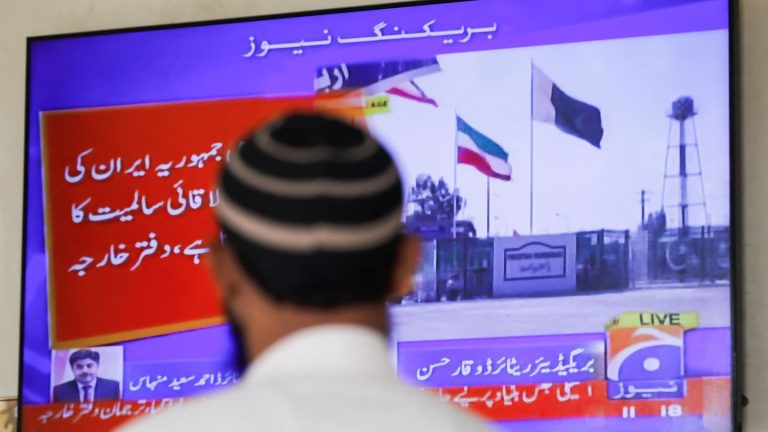Pakistani officials said the Pakistani attacks, carried out using “drones, missiles, munitions and long-range weapons,” were launched in response to Iranian strikes inside Pakistan on Tuesday that killed two children. Both sides said they targeted armed separatist groups that pose a cross-border threat.
Pakistan's interim Prime Minister, Anwar Haq Kakar, cut short his visit to the World Economic Forum in Davos, Switzerland, and Pakistani officials said their army – one of the largest in the region – remains on high alert.
While the border region between Pakistan and Iran has seen occasional outbreaks of violence in recent years, this week's attacks came amid growing concerns about growing instability in the region after Israel launched a war with Hamas militants, who are backed by Iran. Over the past week, the United States carried out several strikes against Iranian-backed Houthi militants in Yemen, who have been attacking ships in the Red Sea; Meanwhile, Iran attacked targets in Iraq and Syria on Tuesday.
The strikes between Iran and Pakistan appear to be somewhat unrelated, as they have targeted armed groups that primarily pose local challenges and pursue limited regional goals.
Pakistan said its strikes targeted members of the separatist Balochistan Liberation Army and Balochistan Liberation Front, who see themselves as representing the Baloch community living across Pakistan, Iran and Afghanistan.
Jaish al-Adl, the Sunni group that Iran said it targeted on Tuesday, also considers itself a Baloch separatist group. Pakistani officials doubt that the groups targeted by Iranian and Pakistani strikes this week actually represent Baloch communities.
Amid heightened volatility across the region, “Tehran likely calculated that this was an opportune moment to strike Pakistan,” said Michael Kugelman, director of the South Asia Institute at the Wilson Center.
Kugelman said that while Pakistan's retaliatory strikes on Thursday represent an escalation that Iran may not have anticipated, the severity of Pakistan's response could also “create opportunities for de-escalation,” especially since “the Pakistan-Iran relationship is not an adversarial relationship and there are no channels for de-escalating tensions.” Dialogue is readily available.”
“But if either side strikes again, all bets are off, and we will have a real risk of conflict,” he added.
The strike in Pakistan was one of a series of recent Iranian attacks in the region, which came later the same day that the Islamic Revolutionary Guard Corps said it fired missiles into the semi-autonomous Iraqi Kurdistan region, targeting what it called a “spy headquarters” for Israel's Mossad. Intelligence agency. Iraqi and Kurdish officials denied these allegations.
The Revolutionary Guards also said it had fired missiles in Syria, claiming they hit “key leaders and agents” behind two explosions this month in the Iranian city of Kerman that killed at least 95 people, an attack claimed by the Islamic State extremist group.
Pakistani officials portrayed Thursday's strikes in Iran as proportionate.
“It is a measured and targeted response,” said Mushahid Hussain Syed, chairman of the Pakistani Senate Defense Committee, pointing to Iran’s lack of an apology for Tuesday’s strikes in Pakistan and “arrogant” and “offensive” comments from the Iranian Foreign and Defense Ministries. .
Iranian Foreign Minister Hossein Amir Abdollahian on Wednesday defended Tehran's strikes, saying they “only targeted Iranian terrorists on Pakistani soil” and not Pakistani citizens. He added: “We do not allow our national security to be compromised or tampered with, and we have no reservations or hesitation when it comes to our national interests.”
In justifying its retaliatory strikes on Thursday, Pakistan's Foreign Ministry used similar language, saying it “fully respects the sovereignty and territorial integrity of the Islamic Republic of Iran,” but its “security and national interests” cannot be compromised.
Hina Rabbani Khar, a former Pakistani foreign minister, told The Washington Post that additional attacks would be “catastrophic.”
Neither Iran nor Pakistan can “afford escalation.”
Nowak reported from Kabul and Vinal from Melbourne, Australia. Susanna George in Dubai contributed to this report.

